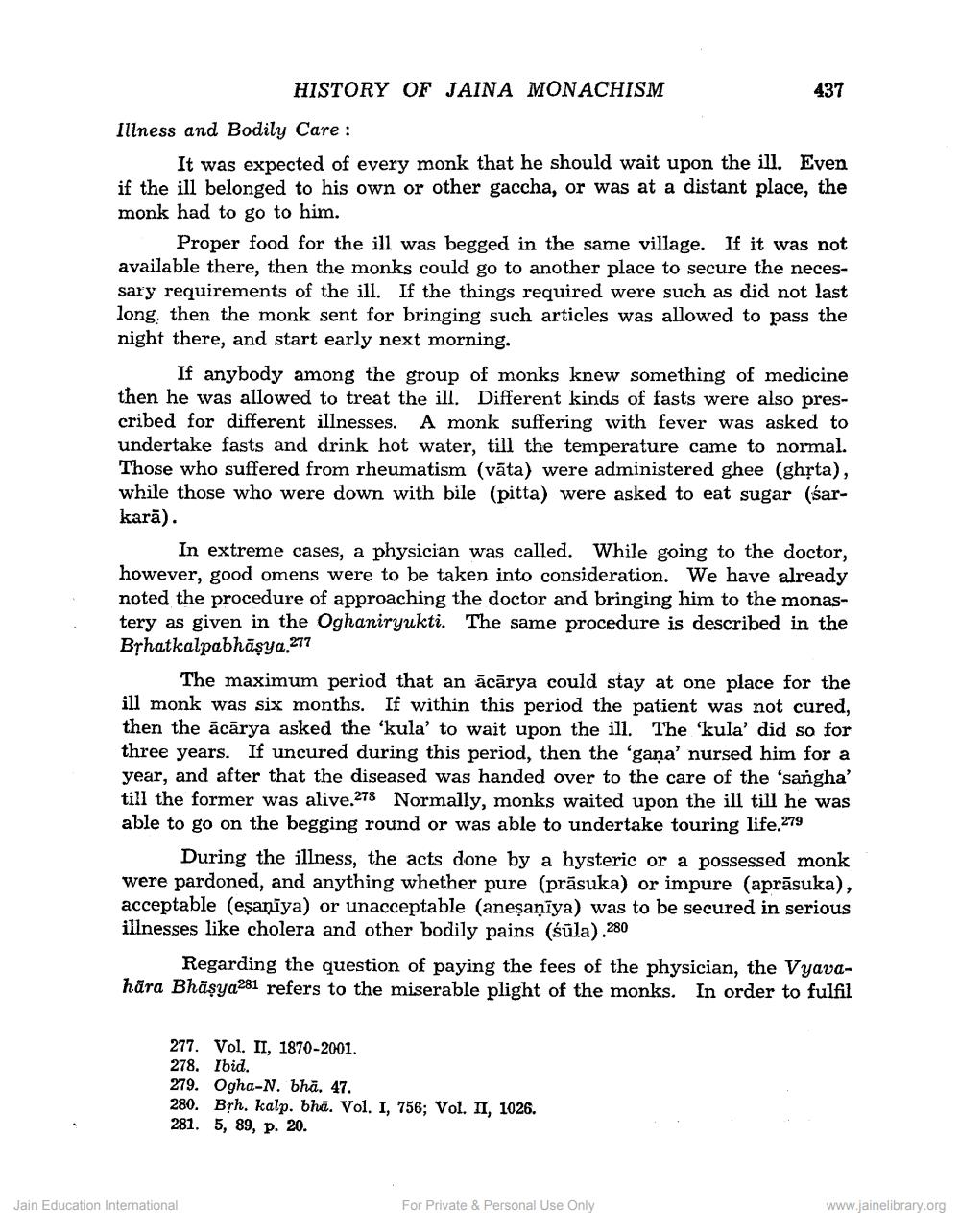________________
HISTORY OF JAINA MONACHISM
437
Illness and Bodily Care :
It was expected of every monk that he should wait upon the ill. Even if the ill belonged to his own or other gaccha, or was at a distant place, the monk had to go to him.
Proper food for the ill was begged in the same village. If it was not available there, then the monks could go to another place to secure the necessary requirements of the ill. If the things required were such as did not last long, then the monk sent for bringing such articles was allowed to pass the night there, and start early next morning.
If anybody among the group of monks knew something of medicine then he was allowed to treat the ill. Different kinds of fasts were also prescribed for different illnesses. A monk suffering with fever was asked to undertake fasts and drink hot water, till the temperature came to normal. Those who suffered from rheumatism (vāta) were administered ghee (ghrta), while those who were down with bile (pitta) were asked to eat sugar (sarkarā).
In extreme cases, a physician was called. While going to the doctor, however, good omens were to be taken into consideration. We have already noted the procedure of approaching the doctor and bringing him to the monastery as given in the Oghaniryukti. The same procedure is described in the Byhatkalpabhāşya.277
The maximum period that an ācārya could stay at one place for the ill monk was six months. If within this period the patient was not cured, then the ācārya asked the 'kula' to wait upon the ill. The 'kula' did so for three years. If uncured during this period, then the 'gana' nursed him for a year, and after that the diseased was handed over to the care of the 'sangha' till the former was alive.278 Normally, monks waited upon the ill till he was able to go on the begging round or was able to undertake touring life.279
During the illness, the acts done by a hysteric or a possessed monk were pardoned, and anything whether pure (prāsuka) or impure (aprāsuka), acceptable (eșanīya) or unacceptable (anesaņīya) was to be secured in serious illnesses like cholera and other bodily pains (śūla).280
Regarding the question of paying the fees of the physician, the Vyavahāra Bhäşya281 refers to the miserable plight of the monks. In order to fulfil
277. Vol. II, 1870-2001. 278. Ibid. 279. Ogha-N. bhā. 47. 280. Brh. kalp. bhd. Vol. I, 756; Vol. II, 1026. 281. 5, 89, p. 20.
Jain Education International
For Private & Personal Use Only
www.jainelibrary.org




